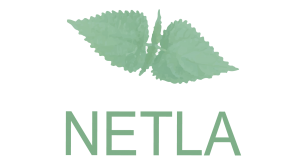Challenges of contemporary parents and ways to promote children and young people’s resilience and prosperity
Eigindleg rannsókn
DOI:
https://doi.org/10.24270/netla.2024/17Keywords:
parents, children and adolescents, parenting, resilience, prosperityAbstract
Parents have a significant role in supporting children and young people in coping with challenges they face during childhood. In Western societies, and especially in Iceland, parental employment is high and the demands for quality of life place a great strain on families. At the same time, mothers still have the main responsibility of taking care of the children and daily household routines. Research findings have identified which parenting styles are best suited to support children’s resilience and welfare. Despite that, many parents experience lack of resources in supporting their children well enough and feel vulnerable in their parental role. At the same time, studies have indicated that children increasingly experience mental distress, and behavioural problems have continued to rise. The aim of this qualitative study is to explore the views of interviewees on the main parenting challenges in modern society and on ways to systematically promote children’s resilience and well-being. Eight interviews were conducted, with four mothers and four fathers who have raised two or more teenagers and worked with children and youth in their professions. The findings indicate firstly that the main challenges of contemporary parenting and families revolve around dealing with too many things at the same time. After work, little time is left for families where opportunities are created for deep conversations which are an important factor in nurturing the social skills and emotional literacy that the interviewees felt a great need for. The findings also reveal that parents are not setting enough healthy boundaries in their upbringing, which can increase the likelihood of behavioural problems and lack in children and young people’s communication skills. Parents are also unsuccessful in reducing their children’s social media use, which in the interviewees’ opinion is far too much. Secondly, four main ways were mentioned to promote children and young people’s resilience and prosperity. The need for more parental education was emphasised, as well as targeted support to parents from professionals, such as educators. This might be related to the increased pace and stress that was described in the daily life of families and the high level of parents’ work participation. The interviewees also believed that schools could be instrumental in this matter as most of the staff has wide experience of working with children and young people.
The implementation of the Act on Integration of Services for the Benefit of Children’s Prosperity, no. 86/2021, is an important step in the direction of offering children and their parents’ access to such services through school and thus responding to the parents’ need for increased support, as shown in the findings of this study. However, it was mentioned that parents must avoid going overboard in their demands on teachers, coaches, and others who work with their children and not to transfer all responsibility of raising the children to them. The interviewees also emphasised the importance of parents identifying and nurturing children’s strengths and self-efficacy and by that shifting the spotlight away from deficiencies and challenges in the child’s life. The participants in the study experienced that parents do not pay enough attention to these protective factors which are the basis for their children’s well-being and ability to cope with stress and challenges. These findings are in line with theories on resilience and positive psychology, where the emphasis is on nurturing the strengths and abilities of individuals under safe circumstances and thus creating a counterbalance to difficult situations, traumas, or other adverse situations that a child lives in. Finally, the results point out the importance for parents to have a safety network as a resource in everyday busy life, where they can seek advice and share their own experiences. The article sheds a clearer light on challenges that arise in modern parenting and how to meet them to safeguard the well-being of children and young people.
Downloads
Published
Issue
Section
License
Copyright (c) 2024 Rósa Aðalsteinsdóttir, Ragný Þóra Guðjohnsen, Lóa Guðrún Gísladóttir

This work is licensed under a Creative Commons Attribution 4.0 International License.
